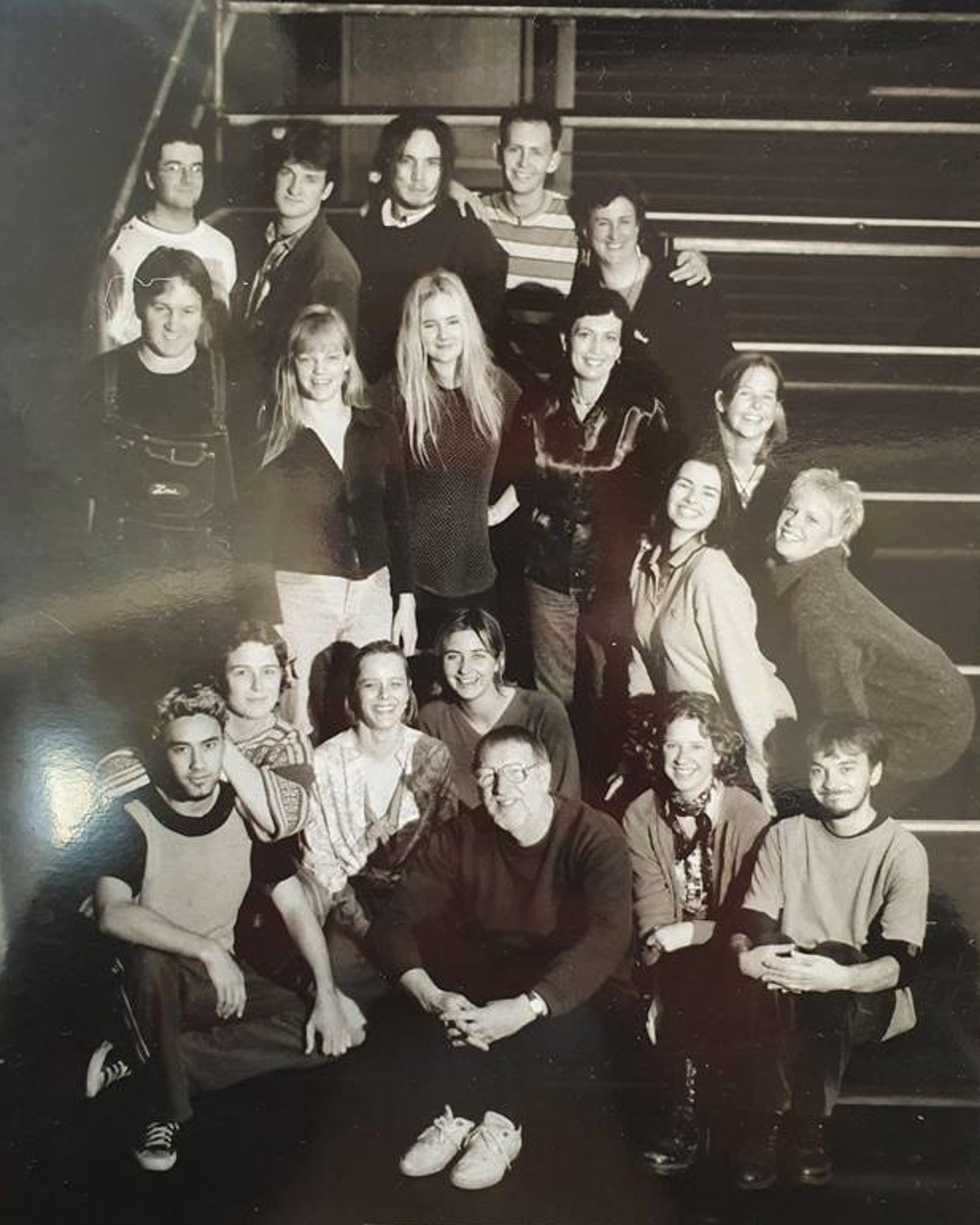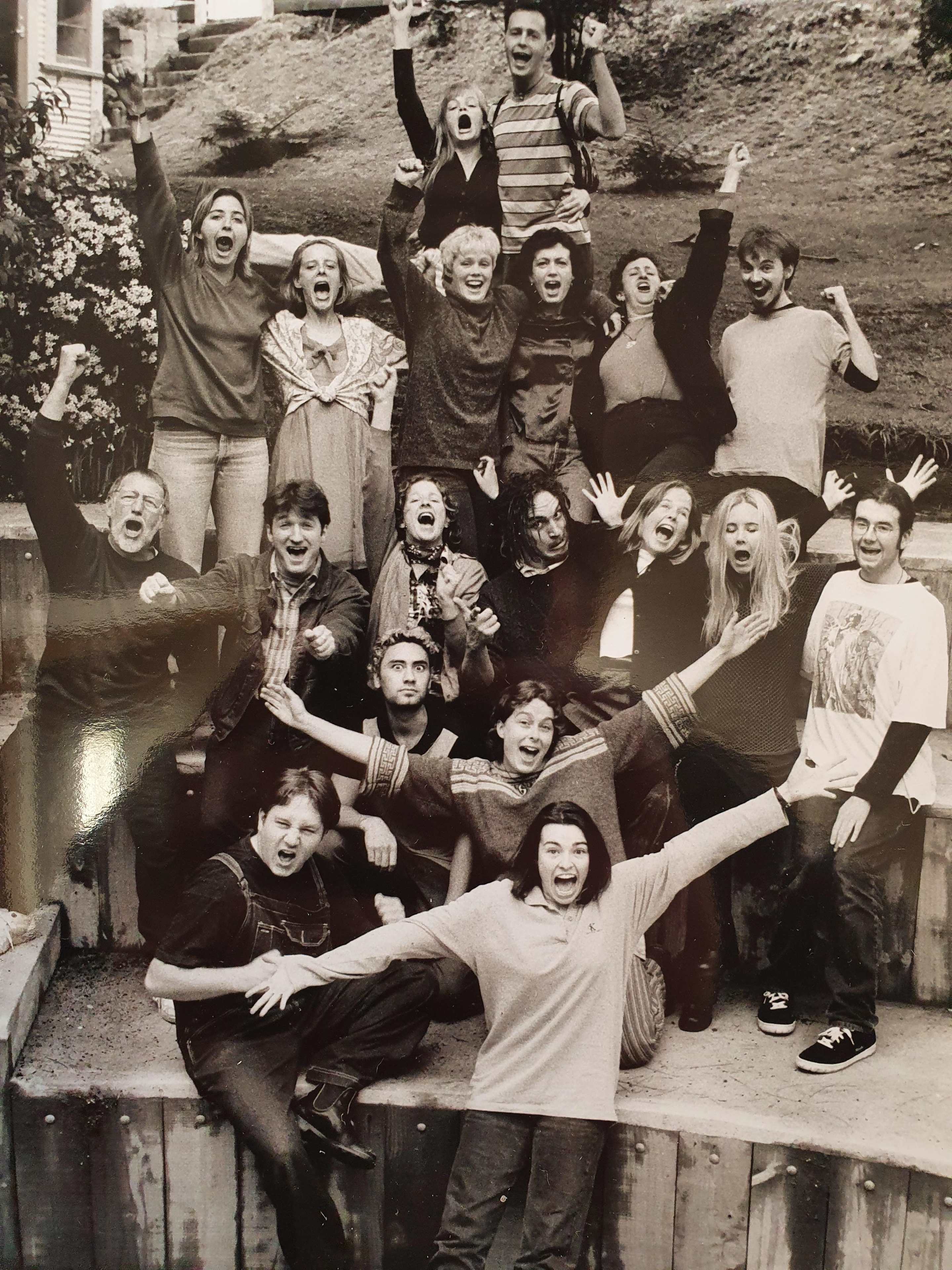As well as cultural enrichment, changes have also occurred due to the digital era, says David. “There has been a huge amount more multimedia and theatre production. My directing lecturer, John Downie, was expert in integrating projection and live performance, for instance.
“Of course, COVID-19 has made a difference to how theatre is perceived. Last year we had to put all our courses online, including our theatre production courses. My class created an innovative version of Chekhov’s Three Sisters, co-directed by myself and alumna Cassandra Tse. This led to the question ‘If you start putting a theatre production on, while recording and editing it online, is it still theatre?’ This is something we’ve debated quite a bit, but I think there is an argument that it is.”
Lighting and sound production have also moved on since David learnt his craft. “When I was a student, we had to learn how to splice audio tape. It’s now on computer, and we have a full workshop for building sets. So students have to learn how to use power tools. The students will come in and build sets, developing a lot of skills that wouldn’t traditionally be associated with university study.”
A core part of theatre programmes for hundreds of years, no matter where you happen to be in the world, is the work of Shakespeare. In Phillip’s time, he produced Macbeth and invited young actor Sam Neill to be a part of it. While a student, David directed the first Summer Shakespeare to be performed in The Dell in 1991, A Midsummer Night’s Dream. The cast and crew included actors Vanessa Rhodes and Sarah Boddy, as well as actor and playwright Mitch Tawhi Thomas, and film and television director Peter Meteherangi Tikao Burger.
David has been a member of the Summer Shakespeare Trust Board since 1999.
“Shakespeare really lends itself to being updated, contemporised, performed in different ways, and made relevant. That is the beauty of it,” says David. “I recall Ania Upstill’s production of Love’s Labour’s Lost with an entirely gender-reversed cast. In 2019, I directed Hamlet for Summer Shakespeare, with Hamlet as a female-identifying character."
The programme as it is taught now continues to focus on theory alongside practice.
“The students get a holistic view of theatre. Phillip’s idea was that you can’t understand a play script without getting it up on its feet. You had to do the theory and practice together. It’s very much still the same. My colleagues and I take turns directing the student productions, and we still do full-length student productions.
“Devising theatre has always been a major part of the programme here. A lot of students create theatre from scratch. We have an Honours student in 2021 who is doing her thesis on digital performance. It’s not TV; it’s people who choose to make performance work through TikTok or other social platforms, as well as live.”
After 50 years of the Theatre programme, the University continues to see success from its former students in film and theatre. While actor and director Taika Waititi and the late playwright Robert Lord are perhaps highest in profile, the programme also counts actors and writers Jo Randerson and Eli Kent, actor and director James Ashcroft, Trick of the Light theatre company founders Hannah Smith and Ralph McCubbin-Howell, and many more as alumni.
Here’s to another 50 years.








